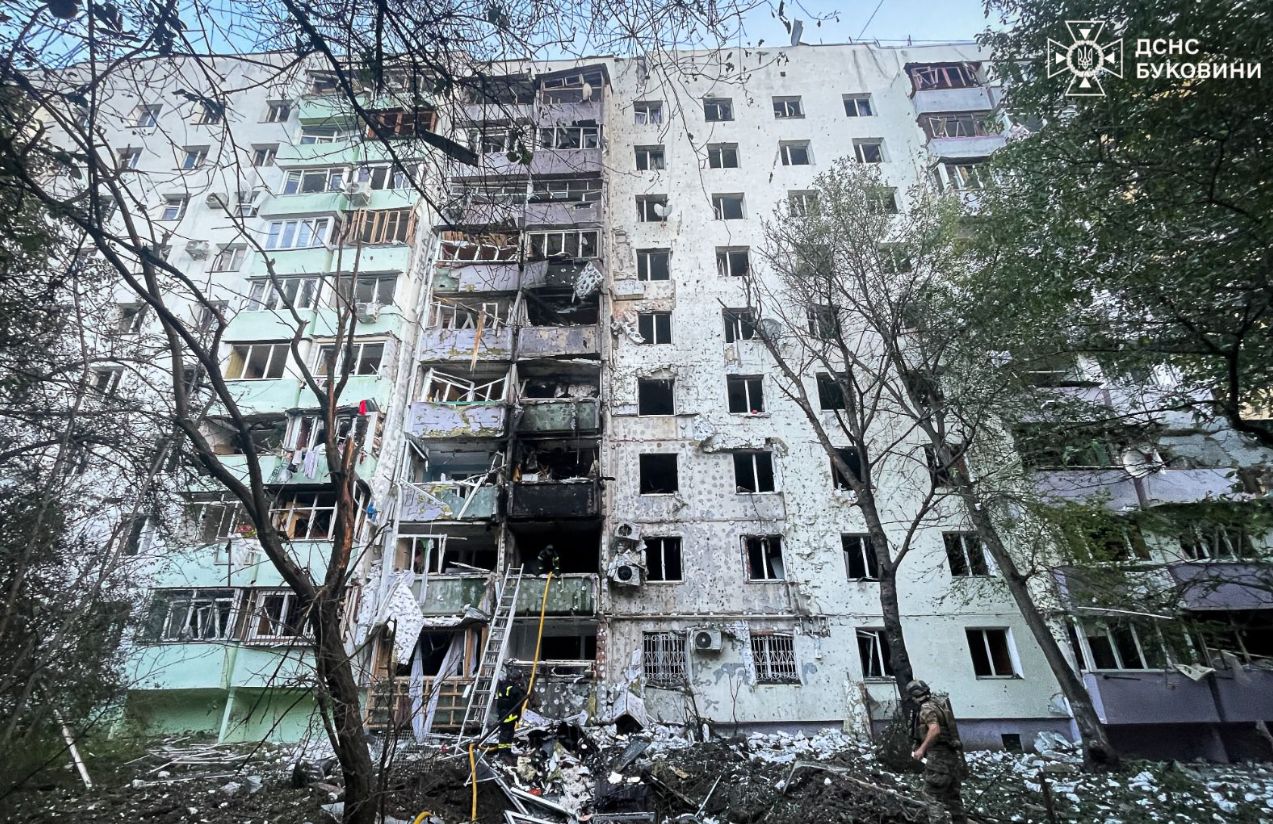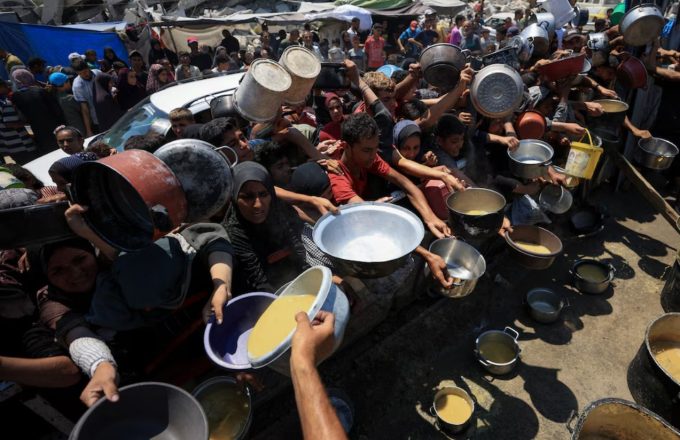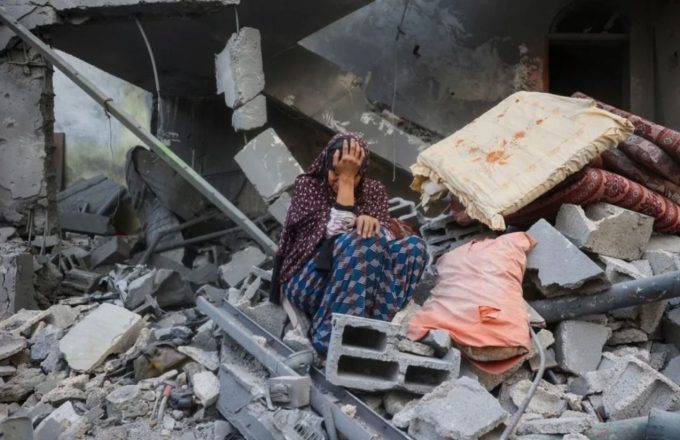Russia launched its fourth major attack on Ukraine this month between Friday night and Saturday morning, unleashing a massive offensive involving hundreds of drones and dozens of missiles, primarily targeting cities in the western part of the country. At least two people were killed in Chernivtsi, near the Romanian border.
Ukrainian President Volodymyr Zelensky reported that Russia fired 597 drones and 26 missiles, resulting in two deaths, 20 injuries, and significant damage to civilian infrastructure from Kharkiv and Sumy in the northeast to Lviv, Lutsk, and Chernivtsi in the west. According to Ukrainian forces, they intercepted 319 drones and 25 cruise missiles, while 258 decoy drones were likely neutralized by electronic interference.
In Chernivtsi, the Bukovina area was among the hardest hit. Regional governor Ruslan Zaparaniuk stated that four drones and a missile struck the region, causing fires and damage to homes and administrative buildings. Two people were killed and 14 others injured in the attack.
In Lviv, near the Polish border, the mayor reported that 46 residential buildings, a university facility, the city’s courthouse, and around 20 buildings housing small and medium-sized businesses sustained damage.
Russia’s Ministry of Defense claimed the strikes targeted facilities within Ukraine’s military-industrial complex in Lviv, Kharkiv, and Lutsk, along with a military airfield. Russian Defense Minister Andrei Belousov also noted that several army recruitment centers were hit — a tactic that has gained prominence in recent weeks. “The strike achieved its objective; all targets were destroyed,” he stated.
This assault is the latest in a wave of large-scale airstrikes that have intensified since June. Earlier this week, Russia launched more than 700 drones, including decoys, in another major attack on Ukraine, surpassing previous night raids for the third time in two weeks. Lutsk — a key entry point for foreign military aid — was one of the main targets.
The UN Human Rights Monitoring Mission in Ukraine reported that June saw the highest monthly civilian casualty toll in the last three years, with 232 people killed and 1,343 injured. In response, Zelensky renewed his call for stronger international sanctions against Russia and urgent reinforcement of Ukraine’s air defense. “The pace of Russian airstrikes demands swift decisions. This can still be stopped with sanctions,” he stated on Telegram.
Russia and North Korea Tighten Military Alliance
At the same time, Russia continues to strengthen its strategic alliance with North Korea. On Saturday, North Korean leader Kim Jong-un received Russian Foreign Minister Sergey Lavrov, who described the relationship between the two nations as an “invincible brotherhood of struggle,” according to Russia’s Foreign Ministry.
The meeting was part of ongoing “strategic dialogue” between Moscow and Pyongyang. Lavrov relayed a message from President Vladimir Putin expressing his desire for closer direct contact with North Korea, as reported by the TASS news agency. The meeting took place in the coastal city of Wonsan, a newly launched tourist destination that also hosts naval and missile facilities.
This visit marks another step in deepening military cooperation between the two countries, which signed a strategic partnership treaty in 2024 that includes a mutual defense clause. Lavrov thanked North Korea for its unwavering support of Russia in the war against Ukraine and did not rule out further military involvement from Pyongyang.
According to South Korean intelligence, more than 10,000 North Korean soldiers have already been deployed to assist Russia, and additional reinforcements could arrive in July or August. South Korea initially sounded the alarm over troop movements, but both Moscow and Pyongyang remained silent until confirming the deployment days later, following reports from Kyiv of North Korean casualties.
In addition to sending combat troops, North Korea also agreed to dispatch 6,000 military engineers and construction workers to aid in the reconstruction of Russia’s Kursk region, where Ukrainian forces launched a massive cross-border incursion nearly a year ago.




















